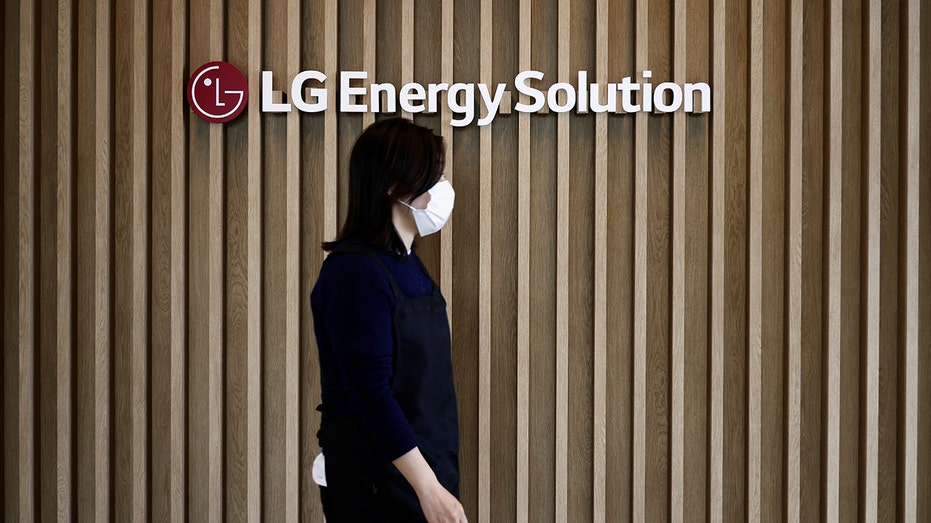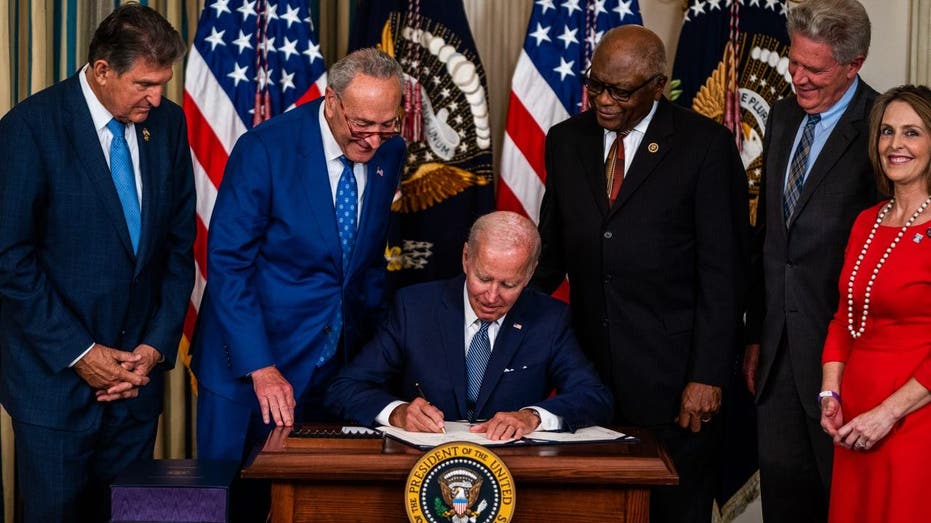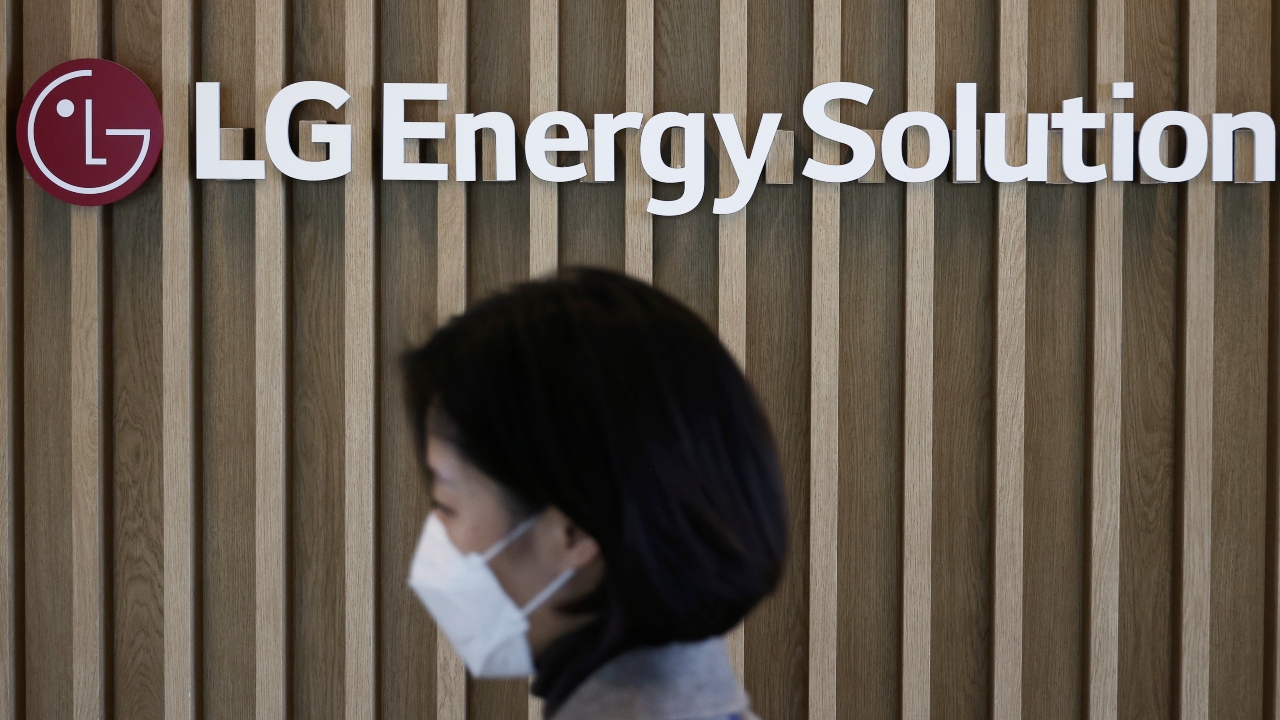South Korea’s LG Energy to build $5.6B battery plant in Arizona
LG Energy is the latest foreign battery maker to commit to projects tapping into the energy transition
Ford 'investing in America' with development of new EV plant
Ford Motor Company President and CEO Jim Farley joins 'Fox & Friends' to discuss the company's ongoing investment in electric vehicles despite reporting $2.1 billion in losses in 2022.
South Korea’s LG Energy Solution Ltd. said it would invest about $5.6 billion in a battery-manufacturing complex in Arizona, the latest in a string of new plants by foreign companies as the U.S. transitions toward cleaner fuels.
LG Energy said Friday that the new battery complex in Queen Creek, Ariz., will mainly serve electric-vehicle makers in North America.
The amount is about four times larger than what the firm had initially pledged when it first revealed plans last year to manufacture cylindrical batteries for electric vehicles in Arizona, though the project had been up in the air until Friday’s announcement. LG Energy said in June 2022 that it was reassessing its investment options due to unprecedented economic conditions. Inflation has been driving up the costs of raw materials and other expenses for manufacturers worldwide.

An employee walks past the logo of LG Energy Solution at its office building in Seoul, South Korea, Nov. 23, 2021. (Reuters/Kim Hong-Ji / Reuters Photos)
The complex announced Friday will consist of two battery plants and mark the largest investment ever for a stand-alone battery-manufacturing facility in North America, LG Energy said.
FORD CEO REVEALS EV REALITY: AMERICA 'CANNOT CONTINUE TO IMPORT' BATTERIES, EARTH MINERALS
LG Energy’s announcement comes as battery makers have been pushing to build up a bigger production base in the U.S., which is looking to strengthen its local supply chains and reduce reliance on China while speeding up shifts to green technologies.
The Biden administration’s Inflation Reduction Act has offered billions of dollars in tax credits for EVs sold in the U.S., but only applies if they have a certain value of their battery components assembled in North America.
LG Energy said the Arizona plant will meet the eligibility requirements of the EV tax-credits program under the IRA.

US President Joe Biden signs into law H.R. 5376, the Inflation Reduction Act of 2022 in the State Dining Room of the White House on Tuesday August 16, 2022. From left, Sen. Joe Manchin (D-W.VA), Senate Majority Leader Chuck Schumer (D-NY), House Majo (Photo by Demetrius Freeman/The Washington Post via Getty Images / Getty Images)
"We believe it’s the right move at the right time in order to empower [the] clean energy transition in the U.S.," LG Energy Chief Executive Kwon Young-soo said.
EV BATTERIES LACK REPAIRABILITY LEADING SOME INSURERS TO JUNK WHOLE CARS AFTER EVEN MINOR COLLISIONS
The EV tax-credits program has stoked complaints from foreign car makers, but has opened business opportunities for non-Chinese battery players including South Korea’s LG Energy, Samsung SDI Co. and SK On Co. as well as Japan’s Panasonic Holdings Corp., which have all announced plans for new manufacturing plants in the U.S., including many via joint partnership with auto makers.
LG Energy is the world’s second-largest producer of EV batteries after China’s Contemporary Amperex Technology Co., and has been seeking growth in the U.S., where it has seen a boost from Washington’s legislation intended to subsidize clean-energy industries and to reduce economic dependence on China.
When excluding China’s CATL, LG Energy is the top battery maker globally, accounting for 21% of the combined EV and energy-storage-system battery market by units sold last year, according to Seoul-based market-research firm SNE Research.
| Ticker | Security | Last | Change | Change % |
|---|---|---|---|---|
| STLA | STELLANTIS NV | 7.52 | -0.33 | -4.20% |
| HMC | HONDA MOTOR CO. LTD. | 30.34 | -0.58 | -1.88% |
In addition to the Arizona complex, LG Energy is working to expand its battery-manufacturing base across North America. It has three plants it has built or is building across the U.S. with General Motors Co. as well as one planned plant with Honda Motor Co. in Ohio and one with Stellantis NV in Canada.
ROLLS-ROYCE SECURES FUNDING TO DEVELOP LUNAR NUCLEAR REACTOR

New vehicles are shown parked in storage lots near the Stellantis Assembly Complex. ((AP Photo/Paul Sancya) / AP Newsroom)
For the coming Arizona complex, the South Korean battery maker plans to spend roughly $3.2 billion on one plant for building cylindrical batteries serving electric vehicles with a production capacity of 27 gigawatt-hours. It is expected to start mass production in 2025.
The remaining amount will be spent on another plant for producing lithium-iron-phosphate pouch-type batteries used for energy storage systems, with a capacity of 16 gigawatt-hours. It is expected to start mass production in 2026, according to LG Energy.




















